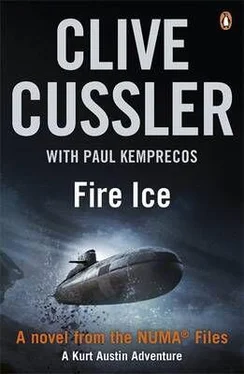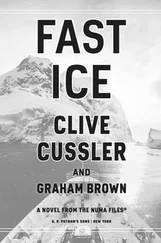He knitted his brow in thought; something was eluding him, lurking in a shadowed comer of his mind beyond the periphery of consciousness. He was sure he'd heard of the Odessa Star before Austin mentioned it. He would find it in five minutes or not at all. He dug through his piles of books and periodicals, mumbling under his breath. Damned if he could remember. Must be getting old. He rummaged for an hour before giving up. He picked a card out of his telephone number file and dialed the international code for London and a number.
A moment later, a clipped British accent answered, "Guildhall Library."
Perlmutter gave his name and asked for an assistant cataloger he had dealt with on previous calls. Like many English institutions, the Guildhall Library had been around for centuries. The original library dated back to 1423 and was acknowledged worldwide for a history collection that went back to the eleventh century.
The library also had the finest collection of wine and food books in the United Kingdom, a fact that had not escaped Perlmutter's attention. But it was the Guildhall's extensive maritime records that Perlmutter often drew upon in his research. England's naval tradition, and the wide reach of the British Empire colonies and trade, made the collection a treasure trove of information about practically every sea-girt country in the world.
The cataloger, a pleasant young woman named Elizabeth Bosworth, came on the line. "Julian. How nice to hear from you again."
"Thank you, Elizabeth. All goes well with you, I trust."
"Very well, thank you. I've been quite busy indexing agreements of colonial registered vessels dating back to the seventeen hundreds."
"I hope I'm not calling at a bad time."
"Of course not, Julian. The material is fascinating, but the work does get a bit tedious at times. What can I do for you?"
"I'm trying to track down some information on an old cargo ship named the Odessa Star and wondered if you could tickle the Lloyd's file for me."
The Guildhall Library held all the shipping records for the giant international marine insurance underwriter prior to 1985. Lloyd's of London had been established in 1811 to provide a universal system of "intelligence and superintendence" in all the principal ports of the world. To accomplish this goal, Lloyd's had set up a network of agents. By the turn of the century, the agency had more than four hundred agents and five hundred subagents scattered around the globe. Their reports on marine casualties, shipowners, shipping movements and voyages were contained in the library's files, where they were accessible to historians like Perlmutter.
"I'd be happy to look into it for you," Bosworth replied. Her enthusiasm was due only in part to the generous contributions, far and above the usual research fee, that Perlmutter consistently made to the library. She shared his love of sea history and admired his book collection. More than once, she had gone to him with queries of her own.
Apologizing for providing so little information, Perlmutter relayed the facts outlined by Austin. Bosworth said she would get back to him as soon as she could. Perlmutter hung up and returned to his research for the Smithsonian. With bulldog perseverance, he unearthed a rough sketch of the Confederate twin-hulled ironclad and was typing out a report on his computer when the phone rang. It was Bosworth.
"Julian, I've found some references to the Odessa Star: I'll fax them to you."
"Thank you so much, Elizabeth. In return, the next time I'm in town I'll take you to lunch at Simpson's on the Strand."
"It's a date," she said. "You know where to find me." They said their good-byes and, a minute later, the fax buzzed and spat out several sheets of paper. Perlmutter examined the top sheet. It was the report of the Lloyd's agent in Novorossiysk, a Mr. A. Zubrin. It was dated April of 1917.
"This is to report that the Odessa Stat; freighter of ten thousand tons, carrying a cargo of coal from Caucasus, enroute from Odessa to Constantinople 1917, February, did not arrive at its destination and is presumed lost. Have confirmed such with G. Bozdag, Lloyd's agent, Constantinople. No report of ship at any Black Sea port. Vessel owned by Fauchet, Ltd., of Marseilles, France, which has put in a claim. Last survey, June 1916, showed ship in desperate need of repair. Please advise as to claim."
The other papers included a three-way correspondence among the agent, the central office in London and the French owners. The French were insisting on full payment of the claim. Lloyd's resisted, citing the perilous condition of the ship, but eventually settled for a third, most of it the value of the cargo.
Perlmutter turned to a ceiling-to-floor bookcase and extracted a thick volume whose burgundy cloth cover was worn with use. He leafed through the registry of French shipping companies. Fauchet had gone out of business in 1922. Perlmutter grunted. Small wonder, the way they neglected their ships. He replaced the registry and picked up another document Bosworth had sent him. It was a copy of a book review from the London Times dating to the thirties.
The headline read: VETERAN SEA CAPTAIN REVEALS SECRETS OF THE BLACK SEA. He put the review aside and turned to the note from Bosworth.
"Dear Julian. Hope this material is of help. I found a reference to your mystery ship in a summary of archival material bequeathed to the library by the estate of Lord Dodson, who served for many years in the Foreign Office. It was a manuscript containing Dodson's memoirs, but it seems to have been withdrawn by the family. There was also mention of the Odessa Star in a book called Life on the Black Sea. We have a copy here and I can FedEx it to you if you wish."
Perlmutter put the note down and went over to a shelf crammed to the gills with volumes of every size and description. He ran his pudgy fingers along a row of books and pulled out a small, slim volume with a leather cover handsomely embossed in gold leaf.
"Hah!" Perlmutter exclaimed in triumph. If he could have danced, he would have done a two-step; No longer worried about his temporary lapse of memory, he scribbled a note on a piece of paper and inserted it in the fax machine. "No need to send book. Have it in my collection. Thanks." As the message flew across the Atlantic, Perlmutter settled into a comfortable chair with a tumbler of iced hibiscus tea, a plate of crackers and white truffle paste by his side, and began to read.
A Russian ship captain named Popov had written the book in 1936. The captain had an eye for detail and a sense of humor, and Perlmutter found himself smiling frequently as Popov related his adventures with waterspouts and storms, leaky vessels, pirates and bandits, thievish merchants, knavish bureaucrats and mutinous crews.
The most poignant chapter was one entitled "The Little Mermaid." Popov had been the skipper of a freighter carrying a cargo of lumber across the Black Sea. One night the lookout saw the flash of lights in the distance and heard what sounded like distant thunder, although the sky was clear. Thinking someone might be in trouble, Popov investigated.
"When my ship arrived several minutes later; we encountered an oil slick, and a cloud of black greasy smoke, hung on the water: There was debris floating everywhere and, more horrifying, burned and mutilated bodies. Despite my entreaties, my crew refused to recover the corpses, saying they were bad luck, and dead and gone in any case. I called for Stop engines and we listened. All was silent. Then came what sounded like the cry of a seabird. I enlisted my loyal first mate and launched a boat. We made our way through the sad flotsam toward the sound. Imagine our surprise when the lamplight fell upon the golden tresses of a young girl. She was clinging to a wooden crate and, had we arrived minutes later; would have frozen to death in the frigid black water: We pulled her into the boat and cleaned the oil from her face. My mate exclaimed: 'Why, she looks like a mermaid!' My crewmen, seeing our lovely burden, put aside their rebellious emotions and ministered to the girl. When she recovered, she proved herself to be quite well-spoken. She conversed easily in French with one of our crew. She said she had been traveling with her family on a ship called the Odessa Star. Although she recalled the ship's name, she could not remember her own but thought it might be Maria. Of her life before the ship went down and the circumstances of its sinking, she could remember nothing. The tough old salts aboard my ship could not have been more tender in their regard and called her 'the little mermaid.' "
Читать дальше












